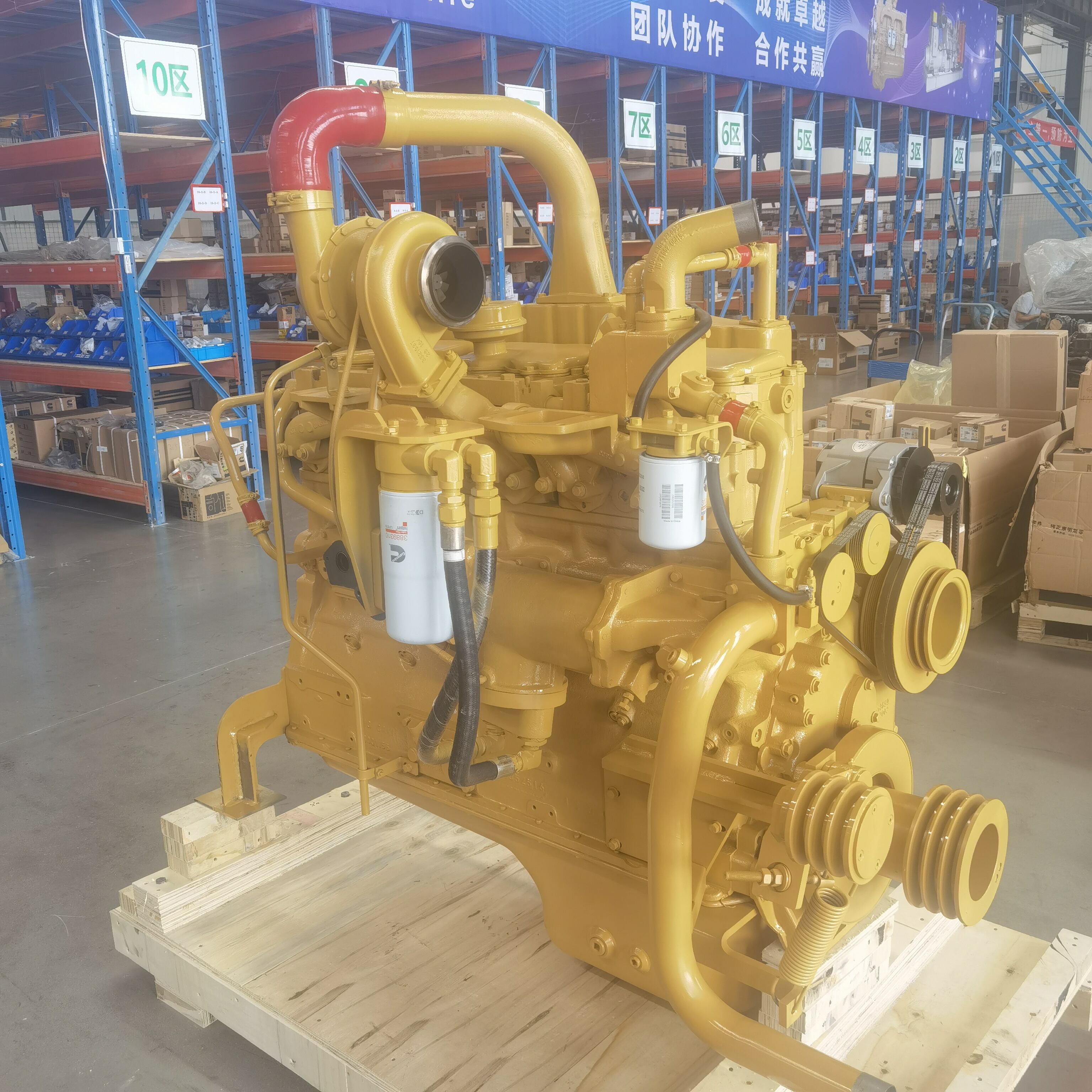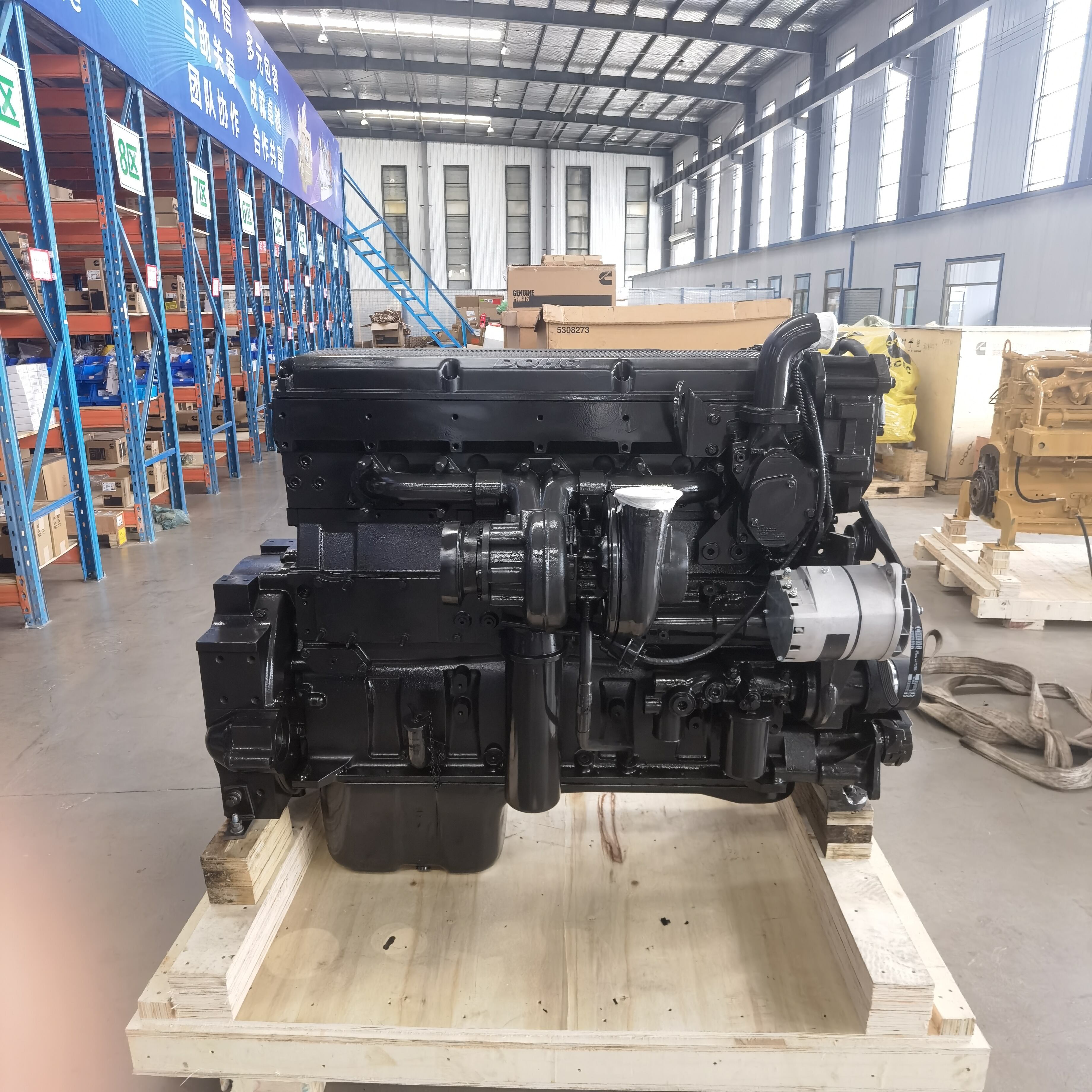How to Choose the Right Cummins Engine for Your Needs
Introduction to Cummins Engines
When it comes to reliability, performance, and versatility in the engine market, few names carry the same weight as Cummins. For over a century, Cummins has been at the forefront of engine innovation, producing power solutions for trucks, buses, construction equipment, agricultural machinery, marine vessels, and power generation. A Cummins Engine is more than just a power unit; it is a symbol of durability and efficiency trusted by industries worldwide. But with a wide range of options available, choosing the right Cummins Engine for your specific needs can seem overwhelming. Understanding the key factors such as power requirements, application type, fuel efficiency, and long-term costs is essential for making an informed decision.
Understanding the Range of Cummins Engines
Light-Duty Applications
Cummins produces engines suitable for light-duty commercial vehicles, pickup trucks, and small machinery. These engines are designed for efficiency and reliability, making them perfect for businesses and individuals that require dependable transportation without the heavy demands of industrial use.
Medium-Duty Applications
Medium-duty Cummins Engine models are often found in delivery trucks, buses, and vocational vehicles. They balance power and fuel economy, offering enough strength to handle urban routes and regional operations while maintaining cost efficiency.
Heavy-Duty Applications
For industries such as mining, construction, and long-haul trucking, heavy-duty Cummins Engine models are the backbone of operations. These engines are engineered to withstand extreme workloads, high mileage, and harsh environments, providing unparalleled durability and performance.
Specialty and Marine Engines
Cummins also designs engines for marine applications, including fishing vessels, ferries, and recreational boats. Additionally, specialty engines power equipment in agriculture and oil and gas sectors, demonstrating the versatility of the Cummins portfolio.
Key Factors to Consider When Choosing a Cummins Engine
Power and Torque Requirements
The first step in selecting the right Cummins Engine is determining the required horsepower and torque for your application. For trucks, this depends on the type of loads being transported and the distances covered. In construction and mining equipment, torque is critical for heavy lifting and sustained operations.

Fuel Efficiency
Fuel consumption plays a major role in operational costs. Cummins engines are known for their efficiency, but different models are optimized for varying applications. A light-duty Cummins Engine might prioritize fuel economy, while heavy-duty models emphasize sustained power with acceptable efficiency levels.
Application Environment
Engines must be matched to their environments. A Cummins Engine used in marine settings requires corrosion resistance and consistent power delivery, while one used in agriculture must handle dusty conditions and irregular workloads. Understanding the working environment ensures that the chosen engine delivers reliable performance.
Emissions Compliance
With global regulations tightening around emissions, Cummins has developed engines that comply with standards such as EPA, Euro, and Tier ratings. Depending on your location and industry, selecting a model that meets emissions requirements is crucial not only for legal compliance but also for environmental responsibility.
Maintenance and Support Availability
Another important factor is the availability of parts and service. Cummins has a global support network, but certain engines may have more widespread parts availability than others. Choosing an engine with robust support in your region reduces downtime and keeps maintenance costs manageable.
Longevity and Total Cost of Ownership
While initial purchase price matters, long-term costs such as fuel, maintenance, and potential downtime have greater influence over the engine’s total cost of ownership. Cummins engines are known for long lifespans, but selecting the right model for the workload ensures that you maximize the investment.
Comparing Popular Cummins Engine Models
ISX Series
The ISX series is widely used in heavy-duty trucks. Known for its power and durability, it is ideal for long-haul trucking operations that demand consistent performance over long distances.
ISB and B Series
The B Series engines, including the ISB, are versatile models found in light- and medium-duty trucks, buses, and agricultural equipment. They offer a balance of power and efficiency, making them one of the most popular choices across industries.
QSK Series
The QSK series represents Cummins’ high-horsepower solutions, often used in mining and marine applications. These engines are designed for the most demanding environments, offering unmatched strength and resilience.
X Series
The modern X Series engines combine advanced fuel efficiency with high performance. These are often chosen by logistics companies and heavy-haul operators seeking to optimize both operating costs and power output.
Steps to Match a Cummins Engine to Your Needs
Assess Your Operational Requirements
Begin by analyzing your daily workload, expected mileage, and the type of tasks the engine will perform. This assessment will help narrow down the required horsepower and torque.
Consider the Work Environment
Evaluate whether the engine will operate in urban centers, rural areas, offshore, or industrial sites. Each environment places different demands on an engine.
Analyze Lifecycle Costs
Estimate long-term costs including fuel, maintenance, and repair. A Cummins Engine may require higher upfront investment but lower lifetime expenses if chosen correctly.
Consult with Authorized Dealers
Cummins dealers and service centers have in-depth knowledge of the engine lineup and can provide guidance tailored to your application and region.
Plan for Future Growth
Select an engine that not only meets current needs but also allows room for operational expansion. For example, a logistics company anticipating growth in cargo loads should opt for a more powerful engine to avoid premature upgrades.
Advantages of Choosing a Cummins Engine
Proven Reliability
Cummins engines are trusted worldwide for their ability to perform under tough conditions. Their reputation for reliability makes them the first choice in many industries.
Wide Range of Options
From light-duty to high-horsepower solutions, Cummins provides engines for almost every conceivable application, ensuring that there is a suitable option for every operator.
Global Support Network
With service centers and parts suppliers around the globe, Cummins ensures that operators can access maintenance and support wherever they operate.
Innovation and Sustainability
Cummins continues to innovate in fuel efficiency, emissions reduction, and alternative energy solutions, ensuring that its engines remain future-ready.
Conclusion
Choosing the right Cummins Engine requires careful evaluation of power requirements, environment, cost efficiency, and long-term goals. With a broad portfolio covering light-duty, medium-duty, heavy-duty, marine, and specialty applications, Cummins provides solutions for nearly every sector. By considering factors such as torque, fuel efficiency, emissions compliance, and service availability, operators can select an engine that maximizes productivity while minimizing costs. The investment in the right Cummins Engine is ultimately an investment in performance, reliability, and the long-term success of your operations.
FAQ
What industries commonly use Cummins engines?
Cummins engines are widely used in transportation, construction, agriculture, mining, marine, and power generation.
How do I know which Cummins Engine is right for my needs?
Assess your power requirements, work environment, and budget, then consult with an authorized Cummins dealer for tailored recommendations.
Are Cummins engines fuel efficient?
Yes, Cummins designs engines with efficiency in mind, offering models optimized for both light-duty and heavy-duty applications.
Do Cummins engines meet emissions standards?
Yes, Cummins produces engines that comply with international emissions regulations, including EPA, Euro, and Tier standards.
What is the lifespan of a Cummins Engine?
With proper maintenance and genuine parts, Cummins engines can last for hundreds of thousands of miles or thousands of operating hours.
Are parts and services readily available for Cummins engines?
Yes, Cummins maintains a global support network with service centers and authorized dealers worldwide.
Can Cummins engines be used in marine applications?
Yes, Cummins manufactures specialized marine engines designed for reliability and corrosion resistance in offshore environments.
Is it better to rent or buy equipment with Cummins engines?
This depends on the frequency and intensity of use. For long-term heavy usage, buying is often more cost-effective, while rental can be suitable for short-term projects.
Are Cummins engines more expensive than competitors?
They may require a higher upfront investment, but their longevity, efficiency, and reliability reduce long-term costs.
Can a Cummins Engine improve resale value of equipment?
Yes, equipment powered by Cummins engines generally retains higher resale value due to the brand’s reputation for reliability and performance.
Table of Contents
- How to Choose the Right Cummins Engine for Your Needs
- Introduction to Cummins Engines
- Understanding the Range of Cummins Engines
- Key Factors to Consider When Choosing a Cummins Engine
- Comparing Popular Cummins Engine Models
- Steps to Match a Cummins Engine to Your Needs
- Advantages of Choosing a Cummins Engine
- Conclusion
-
FAQ
- What industries commonly use Cummins engines?
- How do I know which Cummins Engine is right for my needs?
- Are Cummins engines fuel efficient?
- Do Cummins engines meet emissions standards?
- What is the lifespan of a Cummins Engine?
- Are parts and services readily available for Cummins engines?
- Can Cummins engines be used in marine applications?
- Is it better to rent or buy equipment with Cummins engines?
- Are Cummins engines more expensive than competitors?
- Can a Cummins Engine improve resale value of equipment?

